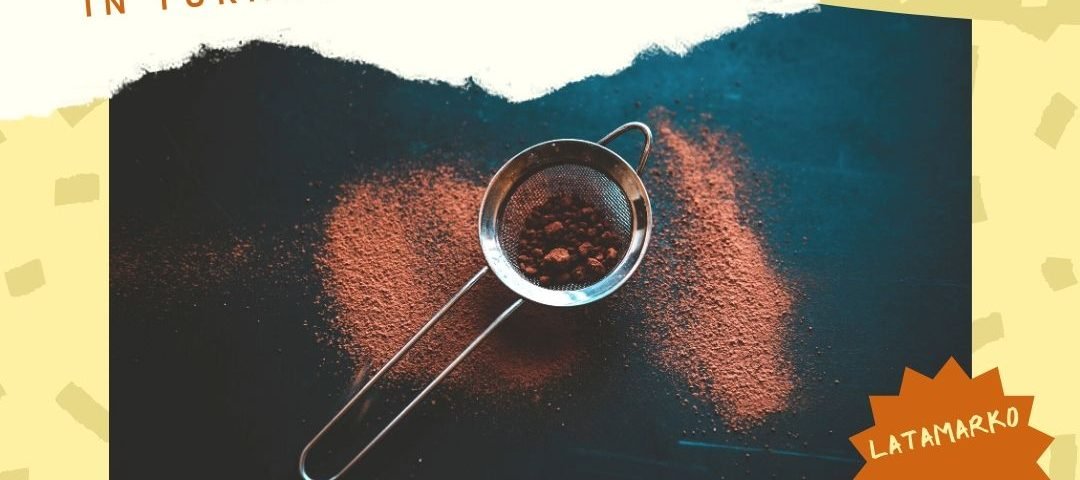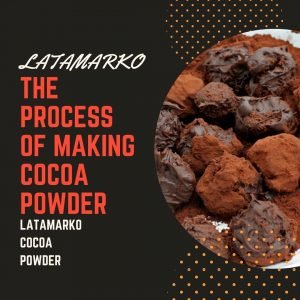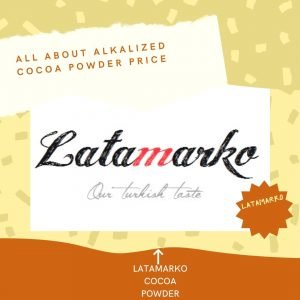Alkalized or non-acidic cocoa powder, the need for any pastry
We have repeatedly addressed the topic of cocoa and compared natural and alkalized or non-acidic cocoa powder, as well as Latamarko company, which produces both types of cocoa powders. Today we continue to study alkalized or non-acidic cocoa powder.
Alkalization or Dutch process has been known since the 19th century. Cocoa alkalization is a treatment with alkali (potassium carbonate), whose origin is natural or artificial.
Potassium carbonate is heated to 250. C. Processing with this alkali can be carried out both at the stage of roasting the beans or before liqueur compression. Of course, alkalizing cocoa liqueur is much cheaper than alkalizing cocoa beans. As beans are intact and large, they are very difficult to process. So to produce alkalized or non-acidic cocoa powder, beans themselves are processed much less frequently.
Alkalization does not directly cause harm to health, but you should be aware that when such a high temperature is used, some of the antioxidants and flavonoids in this plant based product are lost. Of course, it should be noted that the amount of cocoa antioxidants is so high that even after alkalization and production of alkalized or non-acidic cocoa powder, this product is still considered as a food with high antioxidant content.
To understand whether the cocoa powder you buy has undergone the alkalization procedure, look for the inscriptions on the packaging: “contains acidity regulator”, “potassium carbonate”, “potash”, “E501 additive”. If the above statements were written on the product, the intended cocoa powder has been processed.
Why do we need alkalized or non-acidic cocoa powder?
- Longer expiration date
- Cocoa Acid Reduction
- Improving the taste, color and aroma of cocoa (alkalized cocoa is darker and more aromatic)
- Solubility increase
If you have pastry, nothing and no one will convince you to replace alkalized or non-acidic cocoa powder with something else. However, in some cases, cooking requires the activation of soda with an acid. In such cases, the reaction is not performed using alkaline cocoa. This is precisely because processed cocoa already has an alkaline balance.
Latamarko alkalized or non-acidic cocoa powder
As you should have taken by now (of course in the case you are a reader of our site!) the alkalization process in the Turkish company Latamarko is done in different degrees. If the intensity of the process is low, alkalized or non-acidic cocoa powder is obtained with a brown color. If the alkalization intensity increases, the color of this brown powder will be darker, and in the next step, the dark reddish-brown alkalized or non-acidic cocoa powder will be obtained as the third alkaline product of Latamarko. The beans that Latamarko uses to make cocoa powder are completely organic and are purchased from Ecuador and Ivory Coast. In order to sell this product and other company food products, Latamarko is ready to award sales representatives to merchants around the world. Several quality certifications for these products, including “HALAL” certification, has provided the necessary reassurance for buyers and traders.
To order Latamarko alkalized or non-acidic cocoa powder or to know the terms of granting the agency, contact the company’s experts through the “contact us” page.
A short introduction on Latamarko alkalized cocoa powder
Export of cocoa powder to Lebanon
The process of making Cocoa powder
The Difference between High Quality Cocoa Powder and Adulterated One









